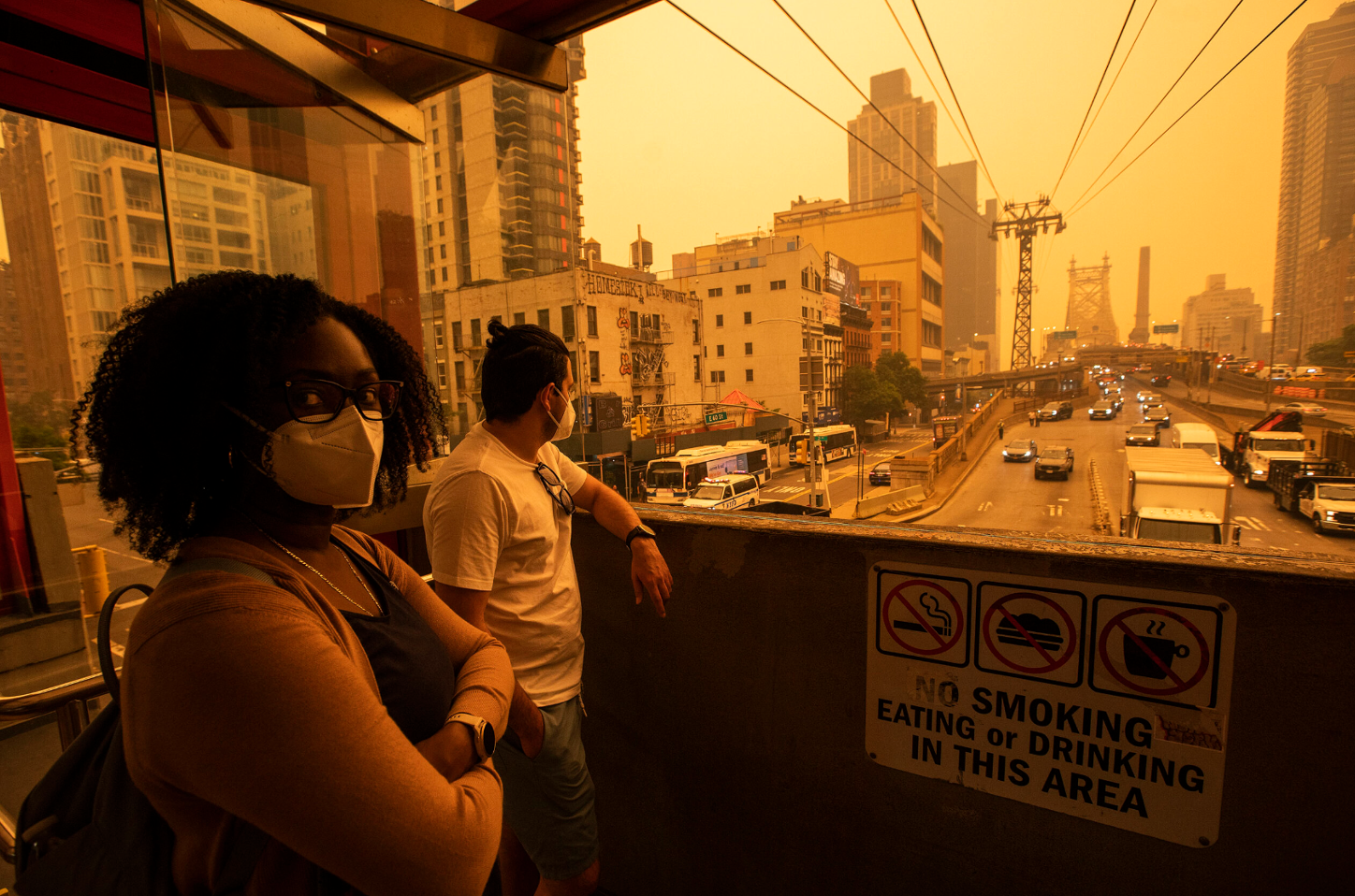“Apocalyptic” Wildfire Smoke May Be a Necessary Climate Wakeup Call

Smoke from the Canadian wildfires could be a wakeup call for many people experiencing climate change impacts for the first time, said Global Climate and Health Alliance Vice Chair on Saturday.
2023 has been the most destructive year on record for wildfires in Canada, said the Canadian Interagency Forest Fire Centre. Canada is warming at double to triple the average global rate, according to Canada’s Changing Climate Report, which has aggravated wildfire-optimal conditions this year. Smoke made headlines throughout June as major American cities like New York City, Chicago, and Detroit were reported to have some of the worst air quality in the world, according to IQAir rankings, thanks to the wildfires to their North.
“You can look at a graph, but opening the window and looking out at gray skies, having to tell your kids they’re not able to go outside – these wildfires are going to give a whole new set of people and decision makers a personal motivation for change,” said Dr. Courtney Howard, the Global Climate and Health Alliance Vice Chair and an emergency physician in Canada’s subarctic.
Wildfires and smoke encouraged by climate change conditions are not new occurrences. The Northwestern regions of North America have struggled for decades with increasingly frequent and intense wildfires, according to Natural Resources Canada. Indigenous communities in particular have been disproportionately affected by climate change and wildfires for years without acknowledgement, said the On Canada Project. Journalist Bill McKibben wrote that the smoke in North America in early June was comparable to daily pollution levels in cities like New Delhi and Shanghai. But many people in the East of North America have only just come face to face with climate change for the very first time.
“It felt scary to know that you can wake up and not be able to see the sky or sun,” said Ekaterina Drobashenko, a student in New York City. “What if it happens again, not for a day, but for a week? Or a month?”
Her characterization of an orange, smokey, New York City as “apocalyptic” has been echoed by many who had never experienced a felt impact of climate change before – so it is understandable that climate anxiety has risen. Climate anxiety is “a very particular anxiety and fear around the looming catastrophe and extinction of life itself that is the climate crisis,” said Dr. Bridget Bradley, a lecturer at the University of St. Andrews. Not only is climate anxiety a rational reaction to a real, and existential, problem, it may actually help motivate people to find solutions, said Dr. Howard.
“This is the beginning of a process for people that involves re-evaluating their decisions and changing their lives in a way that better responds to and aligns with the demands of this moment in terms of climate change,” said Dr. Howard.
Psychological or physical distance from climate change impedes people’s motivation to take climate action, said Dr. Robert Gifford, a professor of environmental psychology at the University of Victoria. Dr. Howard said that this is why graphs of carbon dioxide emissions and pictures of starving polar bears succeeded in convincing people of the reality of climate change, but failed in some ways to inspire significant action: “it doesn’t feel like it’s going to change what you do next Tuesday.”
“Health related impacts can really all of a sudden help illustrate to people that actually, this really is about you and your family and what's going to happen,” she said. Climate anxiety is like an evolutionary signal to change behavior in order to protect one’s self and community, said Dr. Howard.
While change for the average person may take shape in small, everyday actions, collectives of people with political and financial power can incite environmental policy change. The large majority of the top ten states with the highest incomes per capita, according to US census data, reported poor air quality in their major cities due to wildfire smoke in June. Similarly, Ottawa and Toronto, two of the major Canadian cities affected by wildfire smoke, are the political and financial capitals of the country, respectively. There is a dark irony in the UN headquarters in New York City, or the Canadian parliament buildings, being shrouded in orange skies and smoke. A wakeup call may have been exactly what was needed to leverage this power concentrated in the Eastern states and provinces of the United States and Canada.
“What these felt health impacts can do is raise overall levels of ambition, and as a health community, that's certainly what we will be aiming to try to do heading into COP28,” said Dr. Howard. COP28 will be the first ever COP with a health day, according to the official website.
0 Comments Add a Comment?